EMBO|FEBS Lecture Course ‘Cancer systems biology: Promises of artificial intelligence’

The talks featured in this room on the FEBS Network are recordings of live presentations from invited speakers at the EMBO|FEBS Lecture Course ‘Cancer systems biology: Promises of artificial intelligence’, held as a virtual event from September 28 to October 2, 2020.
This 3rd Course on Computational Systems Biology of Cancer was organized by the Institut Curie Training Unit, with support from EMBO and FEBS.
The programme below has links to the recordings of the event talks in this room. You can also read more about the course objectives, history and environment and get an overview of the event, including some great photos, on the Institut Curie website here.
EMBO|FEBS Lecture Course ‘Cancer systems biology: Promises of artificial intelligence’, September 28 – October 2, 2020
September 28, 2020 Session 1: Machine learning in prior knowledge applications for data analysis
Chair: Emmanuel Barillot
September 28, 2020 Session 2: Network biology in Artificial Intelligence era
Chair: Laurence Calzone
September 29, 2020 Session 3: Patient stratification and disease classification using Artificial Intelligence methods (1)
Chair: Inna Kuperstein
September 29, 2020 Session 4: Patient stratification and disease classification using Artificial Intelligence methods (2)
Chair: Inna Kuperstin
September 30, 2020 Session 5: Machine Learning applications in precision medicine (1)
Chair: Chloé-Agathe Azencott
September 30, 2020 Session 6: Machine Learning applications in precision medicine (2)
Chair: Chloé-Agathe Azencott
Talk 10: Jean-Philippe Vert, Google, France. Robust machine learning for cancer precision medicine
Talk 11: Olli Kallioniemi, SciLifeLab, Sweden. AI approaches in Precision Cancer Medicine
Talk 12: Lodewyk Wessels, Netherlands Cancer Institute, The Netherlands. Mapping cellular networks in cancer
October 1, 2020 Session 7: Tumor genetics and epigenetics (1)
Chair: Emmanuel Barillot
Talk 14 (part 1): Julio Saez-Rodriguez, Heidelberg University, Germany. Supporting Machine Learning with Prior Biological Knowledge to extract insight from omics data
Talk 14 (part 2): Julio Saez-Rodriguez, Heidelberg University, Germany. Supporting Machine Learning with Prior Biological Knowledge to extract insight from omics data
October 1, 2020 Session 8: Tumor genetics and epigenetics (2)
Chair: Laurence Calzone
Talk 16: Touati Benoukraf, Memorial University of Newfoundland, Canada. DNA methylation and Cancer
October 1, 2020 Special session: Career development workshop
Chair: Laurence Calzone
Career Development Talk 1: Ana Rita Furtado, Institut Curie, France. What skills are you expected to develop during your research training?
Career Development Talk 2: Emmanuel Barillot, Institut Curie, France. Career in a Bioinformatics core facility
Career Development Talk 3: Maria Papatriantafyllou, FEBS, UK. Career paths
October 2, 2020 Session 9: Bioimage Informatics in cancer research (1)
Chair: Thomas Walter
Talk Not Available: Nasir Rajpoot, University of Warwick, UK. The Promise of Computational Pathology
October 2, 2020 Session 10: Bioimage Informatics in cancer research (2)
Chair Thomas Walter
Talk 20: Emma Lundberg, SciLifeLab, Sweden. AI for improved spatial proteomics
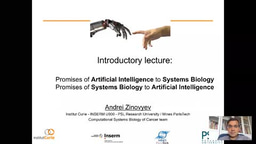
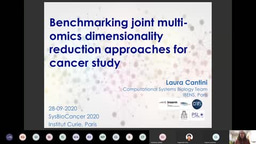
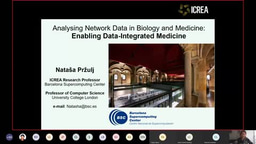
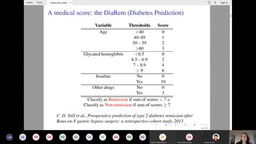
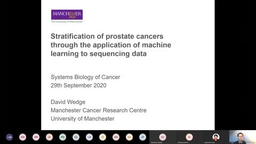
Join the FEBS Network today
Joining the FEBS Network’s molecular life sciences community enables you to access special content on the site, present your profile, 'follow' contributors, 'comment' on and 'like' content, post your own content, and set up a tailored email digest for updates.